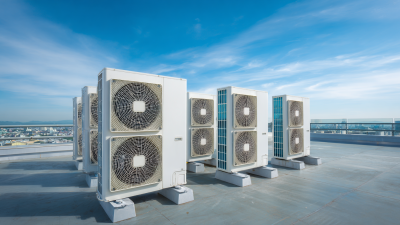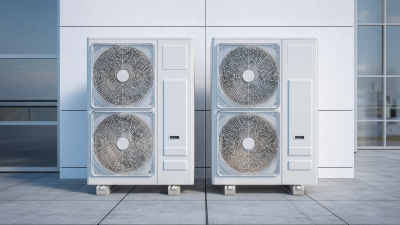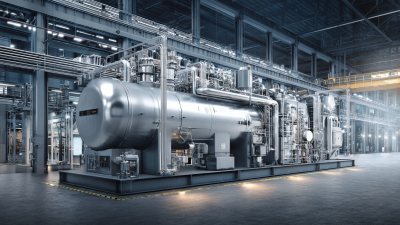Leave Your Message
In the ever-evolving landscape of agriculture, selecting the right equipment can significantly impact your operational efficiency and product quality. One such critical piece of machinery is the rice dryer, which plays a pivotal role in maintaining the integrity of harvested rice by ensuring optimal moisture levels. With a variety of rice dryers available on the market, choosing the best one for your business can be a daunting task. Various factors such as capacity, energy efficiency, and drying technology must be carefully considered to make an informed decision. This article will provide you with seven essential tips to help you navigate the selection process, ensuring that you invest in a rice dryer that not only meets your current needs but also supports future growth and sustainability in your operations.

When exploring the best rice dryer for your business, it's crucial to understand the different types available in the market. The primary categories include batch dryers, continuous flow dryers, and mobile dryers. Batch dryers are ideal for smaller operations, allowing for flexibility and ease of use when handling smaller quantities of rice. They work by drying a specific batch at a time, offering consistent results but may require more manual effort and time between batches.

In contrast, continuous flow dryers are designed for larger quantities, providing a more efficient and automated process. These dryers allow rice to move through the system continuously, ensuring a steady supply of dried product without interruptions. While they typically demand a higher initial investment, they can significantly boost productivity for medium to large businesses.
Lastly, mobile dryers offer the versatility necessary for on-the-go drying needs, particularly beneficial for farmers and small-scale producers who require flexibility. Overall, understanding these options will help you choose the rice dryer that best meets your business requirements.
When selecting a rice dryer for your business, understanding key features is essential to ensure optimal performance and efficiency. One of the most critical aspects is the drying method employed by the machine. According to a report by the Food and Agriculture Organization (FAO), sustaining the quality of rice is paramount, and using a high-efficiency dryer can reduce moisture content to safe levels without compromising grain integrity. Look for dryers that utilize either indirect or direct drying methods, as these can significantly impact both energy consumption and the overall quality of the final product.
Another important feature to consider is the dryer’s capacity and processing speed. As highlighted in a report by the International Rice Research Institute (IRRI), the demand for rice is expected to grow by 25% by 2030. In response, businesses require dryers that can handle higher volumes while still maintaining uniform drying performance. Models that offer automated feed systems and adjustable drying temperatures can enhance productivity and reduce labor costs. Furthermore, energy efficiency is becoming increasingly crucial, as rice milling operations can account for significant energy expenditures; selecting a dryer with a rated thermal efficiency of over 70% can lead to substantial cost savings.
When evaluating the capacity needs for your rice drying operations, it is crucial to consider both the scale of your production and the specific moisture content of your crops. According to the Food and Agriculture Organization (FAO), the optimal moisture content for stored rice is around 12%-14%. To effectively achieve this, businesses must select a rice dryer with sufficient capacity to handle their harvest volumes efficiently. For instance, if a rice producer processes 100 tons of wet rice, the chosen dryer must be capable of handling that load within a reasonable timeframe to avoid potential spoilage.

Additionally, recent developments in drying technology, such as the use of natural rocks as heat-storage materials for food drying, present innovative options for enhancing drying efficiency. A study by Masud et al. highlighted the effectiveness of these materials in Sub-Saharan Africa, where they have been integrated into drying systems to maintain stable temperatures, thus improving energy efficiency. As rice producers critically assess their drying systems, understanding and integrating these advancements can lead to improved processes, reduced energy consumption, and ultimately, higher quality outputs.
When selecting the best rice dryer for your business, assessing energy efficiency and operating costs is crucial. Energy-efficient dryers can significantly reduce your operational expenses, making it crucial to choose a model that minimizes energy consumption while maintaining high performance. Look for dryers that are specially designed to optimize airflow and reduce heat loss. This not only enhances drying efficiency but also results in lower energy bills in the long run.
One essential tip is to evaluate the energy ratings of the dryer models you are considering. Dryers with a high energy efficiency rating will save you money on electricity and may also qualify for government incentives. Additionally, consider the type of fuel used by the dryer, as some may offer more cost-effective options than others. Regular maintenance can also play a role in efficiency—ensure that you perform routine checks to keep the dryer running smoothly and to prevent any unexpected expenses from repairs.
Another vital factor to consider is the operating costs related to maintenance, labor, and spare parts availability. Opt for dryers from reputable manufacturers with solid after-sales support, which can save you money on repairs and downtime, allowing your business to operate seamlessly. Engaging with other rice processors to gather insights about their experiences with specific models can also provide valuable information on operating costs. By prioritizing these aspects, you can make an informed decision that supports your business's profitability.
When investing in rice dryers for your business, the importance of after-sales support and maintenance services cannot be overstated. According to a report from the Food and Agriculture Organization (FAO), inadequate maintenance can lead to a potential loss of up to 30% in efficiency over time. This highlights the necessity for a reliable support system that ensures your dryer operates at optimal performance levels. Regular maintenance not only prolongs the life of your equipment but also minimizes downtime, enabling you to meet production demands without interruptions.
Moreover, a comprehensive after-sales support network can significantly impact your return on investment. Research indicates that businesses with robust maintenance plans see an average of 20% higher equipment efficiency. Choosing a rice dryer supplier that offers exceptional after-sales service, including prompt repairs and regular inspections, can enhance operational reliability. This investment in support services ultimately translates to increased productivity and profitability, making it a critical consideration in your purchasing decision. Always evaluate potential vendors on their commitment to maintenance support and their ability to provide timely assistance, as this can be a decisive factor in your business's long-term success.






